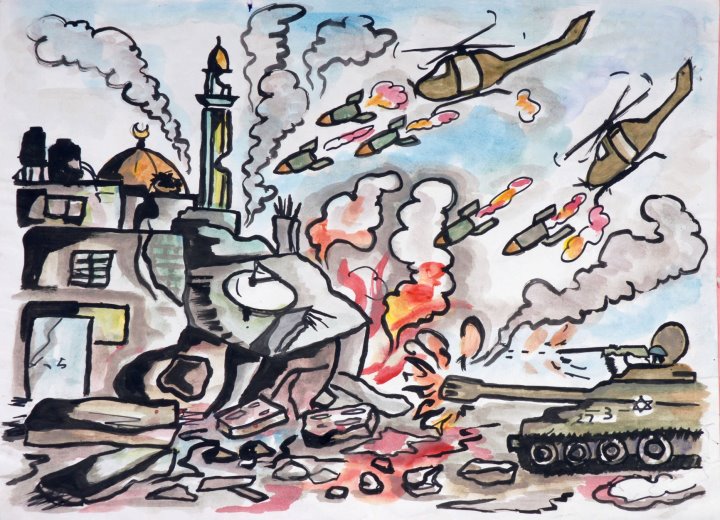Easter freedom for Palestine
The following Saturday after Easter, when it is celebrated by the Orthodox Church, the Spanish Commission for Justice and Peace held a webinar on the situation of the Palestinian people.
We had the presence of Mgr Michel Sabbah, a native of Nazareth, who has lived in Palestine for most of his 89 years. His life and reflections enrich the Christian presence in this part of the world. A land today of two peoples, which it is still home of many religious denominations. A land desecrated because of the permanent scene of war.
At the opening of the webinar we were accompanied by José G. Vera, from the Episcopal Commission for Social Communication, who encouraged the screening of the documentary on Sabbah's life as a window into the Palestinian situation. He shared the experience of his visits as a member of the Coordinating Committee of Episcopal Conferences for the Church in the Holy Land, conveying the great work that the Christian community is doing, and which needs our support, sustenance and prayer. «There are people like the patriarch who make us think that Christian life will continue there as a sign of the presence of the people of God, of those who follow Jesus, but also as a meeting of fraternity between peoples because the help given there by Christians is outside the religious context. It is at the service of humanity and fraternity».
Among the audience that shared this space was the producer of the documentary, Lily Habash. When she thought of producing it, her idea was to pay tribute to Sabbah to uphold his legacy as the first Palestinian Latin patriarch to lead the Catholic Church in Palestine, Jordan and Cyprus in 500 years. She wanted to make sure that many people were informed about him and inspired by his leadership. A Palestinian priest who has made it his vocation to immerse the church in the day-to-day suffering of his people
Sabbah's words are clear from this accompaniment and experience. «Israel is trying to transform the whole of Jerusalem into a Jewish city, even though we are two peoples of about seven million inhabitants each, living on the same land. Today Israel has a state but the Palestinian people have nothing but subjugation to a regime of military occupation, which tortures and expels its persons from their homes.
The difference with the situation in Ukraine is that Palestine is a victim of European policy. At the media level it is not even given 5% of the attention that the war in Ukraine gets. The policy of the Christian West, America and Europe, is not a Christian policy but a policy of interests. American policy has destroyed not only Palestine but the whole Middle East. It destroyed Iraq, now it is destroying Syria and this destruction includes also the Christian communities. Other Muslim countries are also in the network of American interests and so they are not free, although their people do support the Palestinian people because there is a distance between the people and the governments.
The international community has taken resolutions at the UN to resolve this situation of violence, but there is no one, not even in Europe, to have the courage to implement them, and so the situation remains in the hands of Israel, whose current leaders do not want peace. This means waiting for a new generation of leaders who understand the situation and who really want peace.
Some Western churches are more interested in supporting individual people with humanitarian aid. However, the best way to help the Christian community in the Holy Land is to work for justice and peace. This land is not only our homeland, our home, but also the place of the roots of the Christian faith. Thus every Christian person has a responsibility to contribute to reconciliation and peace.
Churches are not asked to support one side of the conflict because that means escalating the war against the other side. Churches in Europe have to understand that, regardless of their affiliation, the interest of the Jewish people is linked to the interest of the Palestinian people, because the two peoples are interconnected. If one has peace, the other will have peace. Therefore, the duty of the churches is to look to the Jewish and Palestinian peoples to seek reconciliation, because the reality is that both peoples can live together in peace.
Although many people believe that God gave this land to the Jewish people, they should know that God is a God of love and not of war. If a part of the Jewish people wants to fulfil God's promise, then they have to do it in God's paths, with love and justice, not with tanks and planes, destroying houses and killing people».
In these days of Easter, other religions have been restricted in their access to places of worship, causing new clashes. The ecumenical NGO Sabeel asks us to sign an appeal for free access to Christian spiritual services.

